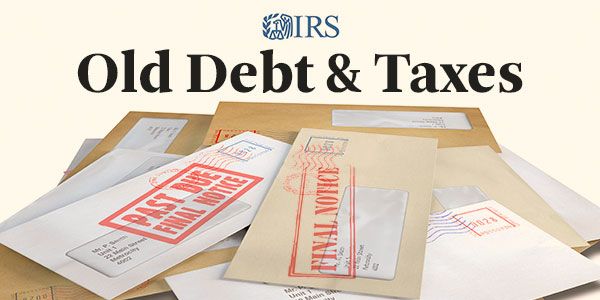In plain and simple words, the IRS treats forgiven debts as your income. To be definite, the IRS considers ‘cancellation of debts’ quite the same as your weekly or monthly paycheck!
And, there is a good reason why the IRS treats forgiven debts as your income.Read on, to understand why.
When you borrow money from a lender, you’re legally responsible for repaying it. It’s your debt, and you should pay it off by hook or crook. You’re personally liable for the debt and creditors can take any action to retrieve it, if you are unable to pay off the debts in due time.
Creditors can file a lawsuit against you, and try to impose a lien on your property or repossess your vehicle or garnish your wage to collect money.But if you want to protect your assets or wage, then you can use the following strategies to pay off debts and save money:
- You can consolidate your debts: When you consolidate your debts, creditors agree to lower your interest rates and waive off late fees.
- You can settle your debts: In this program, creditors forgive a portion of the debt amount. So you pay a lump sum amount for the original amounts owed.
- You can enroll in a DMP: Like debt settlement and consolidation, this is yet another debt relief program that helps you to manage debts at a low-interest rate.
What you need to do when your debts are forgiven or cancelled
Usually, cancellation of debt happens when creditors fail to collect or give up the effort to collect debts from you.
Debts are also forgiven during the following circumstances:
- When your home is foreclosed
- When you opt for debt settlement
- When you opt for mortgage modification
- Even when you are saving considerable amounts under debt consolidation or management
Now, when your debts are forgiven or canceled, you need to report them as your income to the IRS in your income tax return.
You have to select the financial year when your debt was canceled. You can’t enjoy the money just like that. You have to pay a tax on the canceled debt.
The key point to remember: The IRS considers the forgiven debt as your taxable income as the forgiven debt is the amount you are pocketting down.Assuming, you have done debt settlement and have saved a good percentage on the total owed amounts, then you have to pay a tax to Uncle Sam for it.
Here’s how IRS treats forgiven debts:
Suppose, you owe $30,000 on your credit cards and enroll in a debt settlement company to bring the figure down where you could afford to pay it off. The debt settlement company negotiates with your creditors and brings the payoff amount to $20,000. The credit card company agrees to forgive the remaining $10,000.
You’re a happy man now. You have saved $10,000. But the IRS won’t let you escape so easily.
You have used $10,000 to buy goods and enjoy several services, but you didn’t pay it back. So, this is your income.
Creditors are required to send you the 1099-C Form to report your forgiven debts. Again, you’re required to check the form and find out if all the details are correct. For instance, the date of cancellation of debt, and the total amount forgiven by the creditor.
If details are wrong in the 1099-C Form, then contact your creditor immediately. When you see that creditors are collecting debts even after sending the 1099-C Form, you can avoid paying tax to Uncle Sam since nothing has been forgiven yet.
Any bank or a financial institution that forgives $600 or more, is required to send Form 1099-C to you and Uncle Sam at the end of the financial year. In simple terms, it means you have to pay tax to the IRS when you have saved at least $600 on your debts.
What if your creditors don’t send the 1099-C form?
Don’t be on cloud nine just because your creditors haven’t sent you the dreaded 1099-C Form.
The IRS has not forgiven your tax.
You’re still responsible for it and have to pay the tax.
You should report your forgiven debt as your income on the form 1040.
There is no guarantee that your creditor has not reported the canceled debt to the IRS.
Maybe, the creditor has already submitted the form to the IRS. You just don’t know about it.
The IRS can send you a tax bill or an audit notice later. You could end up paying hefty money on the IRS interest and penalties afterward.
How can you avoid paying taxes on forgiven debts?
There are a few situations when you can avoid paying taxes on forgiven debts.For instance, you won’t have to pay tax on the debts that are discharged through bankruptcy.
Again, you don’t need to pay tax if you were insolvent when the debt was canceled. The IRS would consider you as insolvent if the fair market value of your assets is less than your debts.
An experienced tax professional can help you regarding this.
Last but not least, you don’t have to pay tax on the non-recourse loans. When you default on non-recourse loans, the only way lenders can collect payments is by repossessing the property that has been used as the collateral.
The lender can’t file a lawsuit against you for the debts.
Forgiveness of this type of loan resulting from a foreclosure doesn’t lead to cancellation of debt.
In Conclusion:
The tax consequences of forgiven debts are huge. Consult a tax attorney if you have saved a huge chunk on your debts. Perhaps, he can help you to save money on canceled debts.









